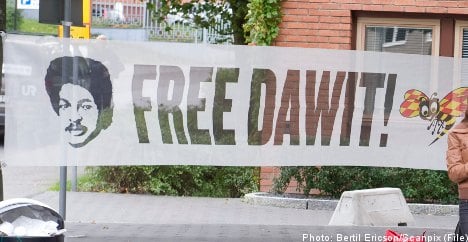The move comes following an email sent on Thursday to all police authorities in Sweden to not forcibly deport people to Eritrea.
“From what I understand the Migration Board is planning to stop these type of forced deportations. That’s why we’ve made this decision,” Sören Clerton, head of the border control unit with Sweden’s National Bureau of Investigation (NBI) told the TT news agency.
Clerton added that police have had talks with both the Migration Board and human rights group Amnesty about the situation in Eritrea.
According to Amnesty, Sweden is the only country in Europe that has continued to deport people to Eritrea in recent years.
“It’s a real problem that Sweden has made a faulty assessment of the risks in Eritrea,” Madelaine Seidlitz, a lawyer with Amnesty in Sweden, told TT.
In an Amnesty report due to be published later in May, the human rights group argues that refugees are viewed as criminals in Eritrea.
“Countless numbers of people have been imprisoned arbitrarily after having been arrested when they try to cross the border,” Amnesty writes, adding that people can be held for up to three years and that their family members can also be arrested.
Nearly all Eritreans who apply are granted asylum in Sweden, the TT news agency reports. The approval rate so far this year is 96 percent. But in some cases, applications are denied and people are deported back to Eritrea. In 2012, 19 people were deported and so far this year four people have been sent back, two of whom were forcibly deported.
Amnesty claims that Eritreans who seek asylum abroad are seen as traitors by the regime and risk being arrested and tortured upon their return.
“We’re looking at that question: is the fact that someone sought asylum in and of itself enough for them to be harmed? Hopefully, I’ll be able to have a ruling on the matter early next week,” Fredrik Beijer, acting general counsel with the Migration Board, told TT.
In the meantime, no one will be deported to Eritrea.
TT/The Local/dl



 Please whitelist us to continue reading.
Please whitelist us to continue reading.
Member comments